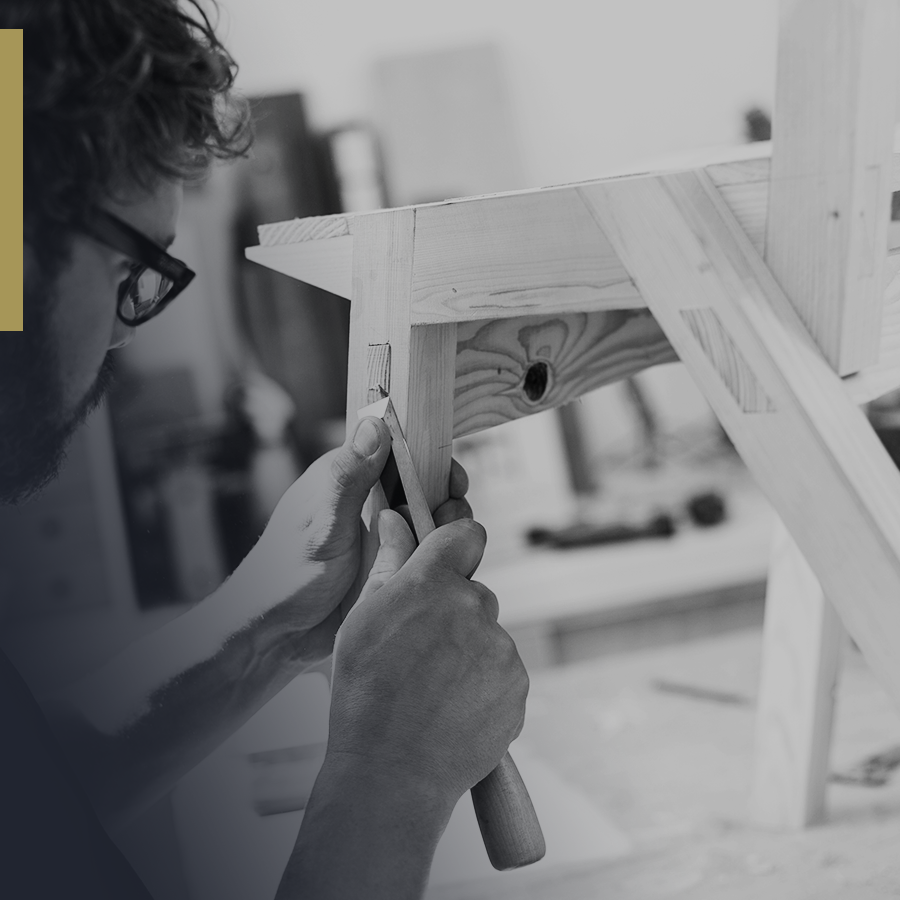McDonough Product Liability Lawyer
Getting Justice for Defective Furniture
Monica* had been so excited to furnish her new apartment in McDonough. She spent dozens of hours poring over online retailers. She picked out her first dining room set and rugs for each room.
This was going to be he first “adult” home, and her first time living without roommates. She wanted everything to be perfect.
Including the furniture she needed to purchase. Monica spent hours reading reviews for each product, intending to get the best quality for the best price.
Her deliveries arrived on a Saturday, and she spent the whole afternoon assembling furniture. When she was finished, she couldn’t stop smiling – her place looked great.
She texted a few friends and invited them for brunch the next morning so she could show off her new home.
Monica was sitting on one of her new bar stools, holding a mimosa and listening to her friend tell a story, when suddenly, she fell.
Without warning, the stool collapsed.
Monica’s head smacked the bar as she fell toward the floor, and she dropped her drink. It smashed on the floor, and her arm landed in a pile of broken glass.
Her friends screamed and rushed over to help. Monica didn’t want to move. Not only was she hurt, but she was also embarrassed.
“Are you really that bad at assembling furniture?” she scolded herself.
No, she wasn’t.
Monica would soon learn that she was Henry County’s latest victim of a defective product and need to find a local product liability law firm.

When to Call a McDonough Product Liability Attorney
It is a sad fact that all consumer products are not safe for use. Occasionally, a product is released to the public that could – or does – hurt the buyer or someone they know.
When someone is hurt by a defective product, the manufacturer or distributor can be held accountable according to product liability law. Most product liability laws are decided at the state level in the United States and proof of various elements is required in order to present a valid claim.
Home goods, children’s toys, auto parts, and medical devices have all been known to fail in ways that injure people.
But other commercially available products are also subject to product liability laws, as well. These include prescription medications and food items.
If you are hurt by the malfunction of an item that you (or someone else) purchased, you may be able to file a product liability lawsuit. If you win, you can be reimbursed for any money you spent or lost due to your injury.
You do not need to have purchased an item yourself in order to file a lawsuit against the manufacturer. If you were injured by a defective product, the identity of the purchaser does not matter.
However, in Georgia, you must file a personal injury claim within two years of the date you were hurt.
If the malfunctioning item caused property damage, and you wish to be compensated, you will have to file a lawsuit within 4 years of the date of the accident.

Why Was the Product Defective?
Monica was inclined to blame herself for the chair’s collapse. Luckily, one of her friends inspected the bar stool while Monica spoke with the paramedics.
The friend noticed that one of the supports under the seat had snapped in half. The other supports were structurally similar, but the broken one was unusually thin at the point where it cracked.
Before the paramedics drive off with Monica, her friend grabbed her hand. “This wasn’t your fault,” she said. “You should sue them, that thing was unsafe.”
Determining what caused the product to malfunction is essential in proving a product liability claim.
There are three main categories that product failures usually fall under.
They are:
- Manufacturing Defects occur due to flaws in construction or production of a product. Usually, only some of the products made contain the flaw, and not the entire line.
Many things can cause manufacturing defects. Sawdust could accidentally end up in a plastic mixture, weakening the final product. Or a car could be missing a brake pad, due to an oversight at the factory.
When errors in manufacturing lead to injury, the product manufacturer can be held liable.
- Design Defects happen when the model for a consumer product is inherently flawed. Even if the item was made perfectly according to its instructions, the product will malfunction.
In such cases, every product in the line will contain the same flaw, and the manufacturer or distributor should recall every item.
If, for example, a children’s toy features small wheels which pop off easily when pulled, that is a choking hazard.
The design of the toy was not adequate, and children could easily be injured by it during use.
- Marketing Defects are flaws in the way a product is labeled. This is also known as a “failure to warn.”
Not all products can be 100% safe. Stoves, for example, must get hot in order to cook food. It is not possible to make a stove that cooks food yet won’t get hot enough to potentially injure someone.
Instead, if normal use of a product could pose a danger to a consumer, the item must be properly labeled with warnings and instructions for correct use.
Similarly, if a product is dangerous in a non-obvious way, it must come with warnings.
For example, if one medication cannot be mixed with others, whether over-the-counter or prescription, it should come with written warnings. If it does not, the manufacturer is liable if someone mixes medications and is hurt or killed.

How Do You Win a Product Liability Lawsuit?
At the hospital, Monica was diagnosed with a concussion and she received several stitches to her arm. The longer she was in the emergency room, the angrier she became.
She had spent so much time researching her options, and still had purchased a faulty item.
The moment she was released, she searched for a personal injury lawyer in Henry County that works with people that have been injured by faulty products.
Monica made the right move. Winning a product liability case without a lawyer’s help is extremely difficult.
To prevail in a product liability case, you have to prove that a product was defective, and that the defect was the immediate cause of your injury or property damage. This is easier said than done.
In McDonough, product liability cases can be based on one of three criteria:
- Strict liability: Product manufacturers and distributers have a responsibility for the safety of the items they sell.
Even if the manufacturer or distributor were careful and maintained proper oversight of their facilities, they can still be held responsible if a faulty product injures someone.
- Negligence: If a manufacturer or distributer did not take reasonable care during production, they could be found guilty under negligence theory.
If the maker knew (or should have known) that the product’s design or manufacturing process could cause defects, your lawyer will recommend negligence theory.
- Breach of warranty: According to the law, companies give warranties, both express and implied, that the items they make, sell, and distribute are fit to use as advertised.
If a consumer product does not live up to it intended purpose and a person is injured, the manufacturer or distributor could be found to be in breach of warranty.
For example, if someone wearing a “bulletproof” vest is shot and the vest does not protect the wearer, the manufacturer could be held liable under breach of warranty.

How a Lawyer Helps You Understand the Law
Monica had no way of knowing why the bar stool broke. She assumed, due to the misshapen post, that it was a manufacturing defect. But she couldn’t be certain.
Luckily, she was represented by experienced attorneys. Scott Key and Associates subpoenaed records from the chair’s manufacturer, including all versions of its blueprints.
We also hired expert witnesses who were familiar with furniture manufacturing. They gave us valuable insight into factory processes, and explained what could have gone wrong to cause the flaw.
Without her lawyers, Monica would have had to research her case herself. Attorneys have access to records and tools that laypeople do not, and she may never have uncovered the necessary information to prove her claim.
In the end, we reached a settlement with the company which produced the stools.
Monica’s medical bills and prescription fees were reimbursed, and she also received a payment equal to the wages she missed while she was at home recovering from her injuries.

Have You Been Hurt by a Defective Product?
If you live in McDonough and have been hurt by a malfunctioning consumer product, contact a law firm near you Scott Key & Associates right now.
All Henry County residents have the right to assume the products they buy are safe for use. Call our office right now at 678-610-6624 to schedule your free consultation.
* For client privacy reasons, the name and minor elements of this story have been edited.


